|
I am grateful for the occasion to share just a few reflections on my discernment journey and priestly ordination during the pandemic, the “COVID class” of 2020! It was about one year ago—March 2020—with less than two months before graduation from St. Mary’s Seminary in Baltimore, MD and ordination scheduled for June when those plans began to change. Like the many high school and college students preparing for graduation, my deacon classmates and I (and the rest of the seminary) were sent home to complete our coursework alone online. Like the many engaged couples preparing for their summer weddings and receptions, our priestly ordination dates were postponed and receptions cancelled. While trusting in God’s grace and purpose, how could I help but feel at least a little disappointed and even frustrated? And yet, therein lie some important lessons God wanted to show me about the life we are each called to live. Every vocation—life’s path and purpose—begins by accepting our way is not always God’s way, and our time is not always God’s time (Isa 55:8-9). And yet, I’ve slowly recognized a great freedom in that fact. A vocation is not about “planning out” your life, or making sure things happen the “right” way. Life does not follow a predetermined script. A vocation is not an intellectual puzzle we work on and hope to “figure out” (or else fail…), but a stepping out in faith day-by-day. Vocation is more about letting go of the controls to be free enough to move in the direction God beckons. A vocation is always a dynamic response to God’s call from a place of freedom and love. And so, while a vocation does involve making a free choice, it’s not about calling the shots in life or predicting the future, but trusting God with the simple question, “where and what next?” Due to the COVID lockdown of 2020, I realized the date and circumstances of my ordination were beyond anyone’s control. Some suggested having small, private ordinations so we would become priests “sooner,” even if we still couldn’t yet go out and serve in parishes, but respectfully, I personally disagreed with that idea. The pandemic re-affirmed my conviction that we were becoming priests for the people of God, not for ourselves. Compared with the physical and emotional toll of the pandemic, the waiting game was an easy burden to bear. The background of the pandemic created a new context to reflect on what shape my life and ministry might take. In our society’s fixation on “finding our best selves,” the gospel-centered vocation acknowledges that “whoever loses his life for my [Jesus’] sake will find it” (Mt 10:39). Vocation is part of our personal participation in the great “mystery of faith,” the “Paschal Mystery” of Christ’s death and Resurrection the Church celebrates most powerfully in Lent and Easter. We cannot experience the true Jesus without both his Resurrection and Cross, and so every authentic vocation will have both its cross (struggle and sacrifice) and its resurrection (joy and victory). However you discern, expect your vocation in life to feel like both at times. Amidst the hardship of our world, a small taste of the patient suffering of the Cross leading up to my ordination turned out to be a small but precious gift not to take for granted. For months during quarantine, I watched medical professionals and other essential workers care for the sick and deliver basic needs—the corporal works of mercy—on the local, national, and international stage. As a deacon waiting in the wings to be deployed to a parish, I felt primed to be sent and make an impact. But all I could do was stay home and pray the Liturgy of the Hours. That summer I did not feel heroic or “essential.” Having been fed a steady diet all through seminary of “the Church needs you!”, I had to accept it wasn’t my moment to be a hero or an influencer. My call was behind-the-scenes mission support, not leading the charge on the front lines. Following Jesus’ instruction to “watch and pray” (Mt 26:41) as others experienced trial and suffering in hospitals and homes challenged me to rid myself of any pretensions of being a priest as being God’s biggest hero. Vocations—religious or secular—motivated by the muscular desire to save the Church/world and solve Her problems almost always end up hurting people in strongarmed attempts to fix whatever they perceive as broken. Before the Cross, there are times all we can or should do is “behold” the brokenness and hurt (Jn 19:26). On the eve of ordination, that forced inactivity was excruciating, but it also drove home a humble admission behind every vocation: I need God more than God needs me. The Cross is essential to Jesus, and beholding Jesus in the sick and suffering, God became more essential to me. To “behold” is not to evade responsibility, but to see that our suffering does not go unnoticed and unredeemed. Not coincidentally, it is on the Cross that we truly see Jesus as our eternal High Priest, the model of priesthood, who is willingly sacrificed for the redemption of our sins. And so, the experience of being ordained a priest during the pandemic, while full of spiritual and personal challenges, also became the occasion for greater reflection on my identity, vocation, and mission. The delay was not lost time, for any time spent with Christ in prayer or service is only counted as gain. I was ordained a priest of Jesus Christ on August 22, 2020. Behold and follow the Cross, and who but God knows where it may lead! For more resources on Vocational Discernment, please click here. For more resources to accompany you through the COVID-19 pandemic, click here.
0 Comments
Today is the feast day of St. Camillus de Lellis. St. Camillus de Lellis was an Italian saint who suffered much from a young age. His mother died during his infancy and he was ignored by his father during his upbringing. Throughout Camillus’ life, he also suffered from a leg sore that he developed at age 17. Camillus served as a soldier and had a violent gambling addiction. By the time he was 24, he had gambled and lost everything he owned—down to the shirt on his back. After having a conversion while staying at a friary of Capuchins, Camillus attempted to join the order multiple times, but was denied due to his leg sore. He spent much of his life in the San Giacomo Hospital for the Incurables caring for the sick and suffering. After receiving advice from his spiritual director, St. Philip Neri, Camillus studied for the priesthood and was ordained a priest at the age of 34. Camillus’ dedication to caring for the sick drove him to begin his own congregation dedicated to serving the sick in hospitals, those inflicted by the plague, and men injured in war. His order came to be known as the Order of the Ministers of the Sick, or simply as the “Camillians.” He is quoted as saying, "If no poor could be found in the world, men ought to go in search of them, and dig them up from underground to do them good, and to be merciful to them." Camillus spent his years in service to others, despite his own physical sickness, and died serving the sick. Camillus is the patron saint of nurses, those who are ill, and those with gambling addiction. I heard on a Catholic podcast that the beauty of saints is that when we ask for their intercession, when we ask them to pray for us, we are asking them to do the praying for us, to pray on our behalf. In a world filled with sickness and suffering, St. Camillus is a saint who can pray for us. Today on Camillus’ feast day, how can you ask for his prayers? Do you have a family member who is struggling with addiction? St. Camillus, pray for us. Are you or a family member suffering from sickness? St. Camillus, pray for us. Do you need hope and inspiration in your ministry? St. Camillus, pray for us. It was a sunny but cold day in October. Twenty young men in long, dark habits knelt in the big, roomy church. The melody of the old organ, played by an invisible musician, echoed through the building. That melody was unknown to me. On that day, I believed that every corner of that church and my heart were full of the melody of glory. I was one of the twenty men kneeling near the altar who had received from the hands of a priest the big silver cross. It was attached to a ribbon that was a black as coal. This was the act of my eternal sacrifice to God. In my shaking hands, I held the crucifix of the One to whom I promised to be a member of the Society of the Catholic Apostolate. I promised chastity, poverty, obedience, perseverance, the sharing of resources, and the spirit of service. I remember noticing that it was like a wedding: the melody of that song had some similarity to a wedding song, although it is possible that it was just the melody of my heart... After one year in the priesthood, I was completely immersed in pastoral work. Holy Mass, catechesis, and long lines to the confessional before Christmas and Easter filled me with happiness. Often when having conversations with people, I would ask them who Jesus was for them. Once, when I met a classmate from school, she asked what made me decide to become a priest. I tried to explain to her that it was a calling to follow God and to explain the happiness that I had in my heart. However, the more I tried to explain to her, the more I understood the weakness of my arguments to a non-believer. After that conversation, the question that Jesus made to the apostles “Who do you say that I am?” often appeared in my mind. Who is that One to whom I offered my life in the Pallottine community? I was the assistant to the parish priest near my hometown, and I was also a chaplain in a neuropsychiatric clinic where there were more than 200 men with different mental disabilities. I thought that I was used to the unusual situations that sometimes happened during Holy Mass: interruptions, babies with smiles on their faces, spontaneous and childish simple questions that they asked. However, there were still many things I was not used to, like the young burdened man at the clinic who touched the cross that I sometimes wear and asked me, “Who is that man?” I was a little confused by his question and tried to give him a simple answer—I just said that he was my friend. This answer was enough for the young man, because he understood the concept of friendship. His nurse Anna and caretaker Julia, who suffered with him in his illness, embodied friendship for him. Then I noticed that my answer was not just an answer to his question, but also to my own. “Who do you say that I am?” Friendship—this is one word with which I can describe my consecrated life. Friendship is not easy because it implies relationship, maturation, and a constant internal struggle with selfishness. I have noticed that in arduous times in my life the voice of my Friend can be heard more strongly. I have heard that voice many times throughout my Pallottine life. Maybe it was the voice of that invisible musician who played the melody in my heart while I first held the big silver cross in my hands during my final vows. I know that this voice has been calling me to bring the words of His Gospel to many different people and areas, which sometimes are very dangerous and unpredictable. I believe that—like the melody in that church where I was kneeling near the altar with my confreres—my consecrated life gains new notes, changes, and rhythms each day. It is not possible to change the melody. I just try to hear the voice of the Eternal Master, the invisible musician, for whom I have consecrated my life in the melody of His glory. This year, we celebrate World Day for Consecrated Life on February 2. For more resources to guide you through vocational discernment, please click here. To learn more about St. Vincent Pallotti and Pallottine spirituality, please click here. On October 14, 2018, Pope Francis will canonize two great church leaders who helped shape Catholicism across the globe in the second half of the twentieth century: Pope Paul VI and Archbishop Oscar Romero. In reflecting on their lives, I cannot do justice to the complex and controversial circumstances that forged these extraordinary men into the saints they are. Instead, I’d like to reflect on something common and fundamental to us and them: Baptism. Baptism sets the foundation for a lifelong calling and mission. The Catechism calls Baptism “the basis of the whole Christian life” and “the gateway to life in the Spirit” (CCC 1213). A saint is someone who lives their baptismal identity to the full. The three fundamentals we are called to live and practice “on entering the People of God through faith and Baptism” (CCC 783) are what we call the “three offices of Christ”: Priest, Prophet, and King. What made Pope Paul VI and Archbishop Oscar Romero saints was the integrity and fullness with which they lived out their baptismal vocations as priest, prophet, and king. Priestly Vocation Both Pope Paul VI and Oscar Romero were ordained Catholic priests, but by virtue of their Baptism they shared what we call the “priesthood of the faithful.” What is this priestly vocation? We live it by offering prayer and sacrifice for others. At the heart of every saint is a love for and commitment to prayer. Archbishop Romero lived his priestly vocation in a powerful and tragic way when he was martyred on March 24, 1980 while celebrating Mass in Divina Providentia Hospital—uniting his prayer and sacrifice with Christ’s into eternity. Prophetic Vocation Paul VI and Oscar Romero excelled at the way they lived the prophetic vocation of their Baptism. A prophet, in the biblical sense, is someone called by God to deliver a message of truth through either words or actions. One of my favorite descriptions of a prophet is one who comforts the afflicted and afflicts the comfortable. During their lifetime, prophets are often inconvenient, unpopular, or even attacked, but history proves they shared the right message at exactly the right time. Both Paul VI and Oscar Romero faced harsh criticism, and Romero (as did many other prophets through history) suffered martyrdom. When Paul VI issued the encyclical letter Humanae Vitae (1968), which affirmed traditional Catholic teaching on sexual ethics, he faced a wave of criticism and dissent in the Church. Fifty years later, many Catholic moral theologians and historians see that his analysis and predictions were right on target. Archbishop Romero, standing in the tradition of Old Testament prophets like Amos and Isaiah, stood up and spoke out to the government (known as the Junta) in his home country of El Salvador, as well as other world governments (including the United States), on behalf of the poor and marginalized who were being treated unjustly. Like Paul VI and Romero, every baptized person is called to stand up and speak out for truth and justice, especially when it is unpopular or inconvenient. Royal Vocation While we gravitate toward thinking of the “royal” or “kingly” role as one of being above or served by others, it is actually the exact opposite. A true leader is one completely dedicated to serving others through his administration and decision-making. I can think of few more monumental or difficult tasks a church leader faced than Pope Paul VI when he was called by the Church to steer the conclusion and implementation of the Second Vatican Council (1962-65), which has been called the single most important religious event in the twentieth century. Archbishop Oscar Romero was often criticized for his ecclesial administration getting mixed up with the political situation. Yet Romero recognized that in order to effectively lead and serve the church under his pastoral care, he needed to engage the civil government around him. We, like Paul VI and Oscar Romero, do not become saints by being perfect administrators or leaders, but by bringing God’s spirit of wisdom into the challenges and opportunities that come our way. I would guess that at their baptism and even priestly ordination, Paul VI and Oscar Romero had no idea how God had planned for them to exercise their royal vocation. Under extraordinary times and circumstances, these saints modelled for us how we all are called to exercise leadership in ordinary, everyday circumstances with humility and whole-hearted devotion to God and others. On October 14, let us rededicate ourselves to living our own priestly, prophetic, and royal vocation of Baptism with the same spirit and integrity as Pope Paul VI and Archbishop Oscar Romero. Please click the following links for more information about the canonization and lives of Pope Paul VI and Oscar Romero. “Everything is well when it is done as God wishes.” – St. Vincent Pallotti
In October, there will be a Synod of Bishops devoted to the interconnection between faith and vocational discernment in the lives of young people. When a person in Catholic circles, especially a young person, says that she or he is “discerning a vocation,” usually this means consecrated life or priesthood. More often today, though, it also includes discernment of whether one is called to the vocation of marriage. Over the last two decades, I have had the privilege of accompanying numerous young adults who are discerning their vocation. As they have come to a decision about a life vocation, I have witnessed their marriages, consecrations, and ordinations. During this year alone, many months have been filled with the joy of such events which will continue into the foreseeable future. Such moments bring me great joy as they should for the Church. More so, though, we are called to discern the ways in which we can live our primary vocation, the call to holiness. This call, as the Second Vatican Council taught, is “universal” (Lumen Gentium, c. V) It is what God desires of all human beings, to live in a loving union with God and neighbor that leads to salvation. Pope Francis teaches us in Gaudete et Exsultate that “This holiness to which the Lord calls you will grow through small gestures” (GE, 16). Small gestures lead to larger action through discernment. Is such discernment easy? No. In fact, it is challenging and difficult and can be a cross. But, we are called to take up our cross and follow (Mk 8:34) since no one is called to be a professional discerner. We are called to make choices that are for Christ and witnessed through our love and care for our neighbor. Simply praying, thinking, or talking is not enough. We are challenged to move forward. “It involves striving untrammeled for all that is great, better and more beautiful, while at the same time being concerned for the little things, for each day’s responsibilities and commitments” (GE, 169). May the Charity of Christ urge us on! In God, the Infinite Love, Fr. Frank Today ends a yearlong celebration of the Jubilee of the 200th Anniversary of the Ordination to the Priesthood of St. Vincent Pallotti. In celebrations in 54 countries around the world and beyond, Pallotti’s foundation, the Union of Catholic Apostolate, is offering thanks for his life of selfless ministry. Ordained on May 16, 1818 as a priest of the Diocese of Rome, Pallotti served his entire life in the city, especially through pastoral care of the poor, sick, prisoners, and dying, spiritual direction, education, and sacramental ministry, particularly the Eucharist and Penance. Through reviving faith and rekindling charity as a priest always in collaboration with others, he was inspired 17 years later to found an association of lay people, religious and clergy that would assist the Church’s missionary efforts, revive the faith of Catholics, and live universal charity. He called it the Union of Catholic Apostolate. Only after almost 20 years of priestly ministry did he form a community of priests and brothers as well as a community of sisters. Both communities were small by the time of his death in 1850, but today are throughout the world. Fr. Jacob Nampudakam, S.A.C., the Rector General of the Society of the Catholic Apostolate (Pallottine Fathers and Brothers) in his book, The Spirit of the Priesthood according to St. Vincent Pallotti, summarizes well the way in which Pallotti went about his priestly ministry: “Vincent Pallotti from the very beginning of his priestly life, committed himself to live out all of the implications of the ministerial priesthood and revive its evangelical spirit. He interiorized the priesthood as a following of Jesus Christ and expanded his vision and put it into practice by means of priestly activities” (9). Pallotti in and through his priestly ministry lived the life of an apostle, a follower of Christ who is sent out into the world to share the Gospel in word and deed. As apostles, we are not alone, as Pope Francis notes: “I entrust all of you to the protection of Mary Most Holy, whom St. Vincent Pallotti venerated especially as Queen of Apostles. Her good example of apostolic zeal and perfect charity, invites us to pray without ceasing to invoke the gifts of the Holy Spirit upon the apostles of today, so that the Gospel of her Son can be proclaimed in every part of the world.” May the Charity of Christ urge us on! In Christ, Apostle of the Eternal Father, Fr. Frank
"The questions lurking in human hearts and the real challenges of life can make us feel bewildered, inadequate and hopeless. The Christian mission might appear to be mere utopian illusion or at least something beyond our reach. Yet if we contemplate the risen Jesus walking alongside the disciples of Emmaus (cf. Lk 24:13-15), we can be filled with new confidence" - Pope Francis, Message for 2017 World Day of Prayer for Vocations.
Discerning one's vocation in life is not easy. It is a challenge, particularly if one thinks one is alone. But, we as baptized realize that we are not alone. Jesus Christ is walking with us in the same way in which he walked with the disciples on the road to Emmaus. He accompanies us through the community of faith, the Church. We encounter Christ and are accompanied on our journey in our participation in the Sacraments, through the teachings of our Faith, by the Church's ministers, and in communion with the People of God. In our personal prayer, he is present as well, but we need to quiet ourselves and hear the "tiny whispering sound" as did the Prophet Elijah in the cave ( 1 Kings 19:12). As St. Vincent Pallotti taught in the nineteenth century, so does the Second Vatican Council and the Popes that followed, we are called to be apostles or missionary disciples. We have an apostolic vocation in life. Even those who are contemplative pray not for themselves, but for the whole Church. Whatever our particular vocation - marriage, Consecrated Life, or priesthood - we are all sent by God on mission to our brothers and sisters, witnessing Christ by what we say and do. We are called to accompany others in prayer and action in encountering Christ. Over the last years, I have had the privilege of accompanying many young men and women as they discerned their vocation in life. As each would make her or his choice after a long questioning and search that was sometimes bewildering, a sense of profound peace would come upon them. This is the peace that comes from Christ in and through the Holy Spirit. It is the peace that he has left us as his missionary disciples so that we may go forth in his name! May the Charity of Christ urge us on! The Church celebrates National Vocation Awareness Week this year from November 5-11. According to the USCCB, it is “an annual week-long celebration of the Catholic Church in the United States dedicated to promote vocations to the priesthood, diaconate and consecrated life through prayer and education, and to renew our prayers and support for those who are considering one of these particular vocations.” In order to learn more about vocations and discernment, the Catholic Apostolate Center reached out to men currently in formation and asked them the following three questions: What were you doing before formation? What are you doing now? And what has this transition been like? Below are their answers about the transition from the collegiate atmosphere into formation for the priesthood and/or Consecrated life. What were you doing before formation? Before entering formation in the Society of the Catholic Apostolate, I was a full-time graduate student at the University of Notre Dame in South Bend, Indiana. I completed my doctorate in history, specializing in the religious and medical history of modern France. I was used to a fairly independent and loosely structured life. I owned my own home, studied and taught at the university, and was actively involved in my local community through civic and fraternal organizations. My life was dominated by an irregular schedule, where any time of the day was a good time to research and write my dissertation! What are you doing now? Currently I am in the second year of my novitiate, which is traditionally called the “scholastic” year because members of my community use this year to pursue any remaining college studies before entering a theology program. Luckily, my educational background afforded me the special opportunity to spend this year immersed in ministry at Bishop Eustace Preparatory School, a school owned by the Pallottines. I work a full day in the Christian Ministry Office, helping students develop their service projects and accompanying them on service retreats and projects at local charities and schools. I also substitute teach wherever I might be needed. Currently, I am filling in for a teacher on maternity leave. I teach a full course load of U.S. History, Government, and Criminal Justice classes. Twice a week I also take night courses to learn Italian, which is one of the two official languages of my community, and three nights a week I study selected topics in Pallottine life. In my spare time, when I am not grading papers or preparing lectures, I am working on a new edition of a biography of our founder, St. Vincent Pallotti, and a translation of our history from an Italian original. My day begins and ends with the Eucharist and is anchored by the Liturgy of the Hours, which is a source of strength and mission for me each day. What has this transition been like? As you can see above, I do not lack things to do! It was certainly an adjustment moving from the uncertain schedule of graduate student life to the precise one of a religious novice. It has been a time of growing closer to Jesus Christ and seeing how He acts in my life and sets a special vocational path in front of me. The transition has been one of growing closer to Christ as Apostle of the Eternal Father, learning the unique spirituality of Pallottine life, and how to apply this charism to my own physical, spiritual, intellectual, and apostolic development. Further, the deep sense of companionship and accompaniment by Brother Jim, my Director of Preparatory Formation, has inspired me to enkindle the flame of our charism within my own life. I am able to apply all my skills and talents in academia to my life as a Pallottine novice, and each day I am surprised by the new and creative ways I discover to make our charism alive to others. To learn more about Vocational Discernment, please visit our Vocational Discernment Resource Page.
The Church celebrates National Vocation Awareness Week this year from November 5-11. According to the USCCB, it is “an annual week-long celebration of the Catholic Church in the United States dedicated to promote vocations to the priesthood, diaconate and consecrated life through prayer and education, and to renew our prayers and support for those who are considering one of these particular vocations.” In order to learn more about vocations and discernment, the Catholic Apostolate Center reached out to men currently in formation and asked them the following three questions: What were you doing before formation? What are you doing now? And what has this transition been like? Below are their answers about the transition from the collegiate atmosphere into formation for the priesthood and/or Consecrated life. What were you doing before formation? Before I entered seminary, I attended The Catholic University of America for two years, where I majored in Philosophy. I like to think that I was your average college student. I was a Resident Assistant my sophomore year; I was involved in the Knights of Columbus; I held a few on-campus jobs. I had a close group of friends who would go to daily Mass together, as well pray the rosary and spend time in Washington, D.C. I tried to be as active in college as I could. What are you doing now? I am in “College IV,” which is the equivalent to being a senior, at the Saint John Fisher Seminary program for the Diocese of Bridgeport. This is currently my second year in formation. I am working towards my Bachelor of Arts Degree in Philosophy from Sacred Heart University (SHU). I live with seven other men in the diocesan formation program. Our daily schedule begins with a Holy Hour in the morning, followed by Holy Mass and breakfast. We have classes throughout the day, some at SHU, some at the seminary. In the evening we gather for prayer and dinner. After graduation in May, I will be going to a Major Seminary to begin my four years of Theology Studies. What has this transition been like? Like any major life change, the transition into seminary formation has had its challenges. It was very hard to leave the community I was involved in at CUA. However, seminary is not something you do on your own. I learned the importance of fraternity through my involvement with the CUA Knights, and seminary formation deepened this fraternity. After adjusting to the daily schedule, and better understanding what it really means to give my life for Christ, the transition into seminary became less challenging. I have had no regrets from transferring into seminary in the middle of my undergraduate career. The transition from college into seminary, as hard as it was, taught me how important it is to trust in God’s plan, and how much joy and peace listening to Him will bring to our lives. To learn more about Vocational Discernment, please visit our Vocational Discernment Resource Page.
The Church celebrates National Vocation Awareness Week this year from November 5-11. According to the USCCB, it is “an annual week-long celebration of the Catholic Church in the United States dedicated to promote vocations to the priesthood, diaconate and consecrated life through prayer and education, and to renew our prayers and support for those who are considering one of these particular vocations.” In order to learn more about vocations and discernment, the Catholic Apostolate Center reached out to men currently in formation and asked them the following three questions: What were you doing before formation? What are you doing now? And what has this transition been like? Below are their answers about the transition from the collegiate atmosphere into formation for the priesthood and/or Consecrated life. What were you doing before formation? Besides delaying the inevitable and drinking too much coffee, I was studying Philosophy and Theology as an undergraduate student at The Catholic University of America before entering into formation. I was a Resident Assistant for three years and was involved with the Knights of Columbus Council on campus. I also had a part-time job working in the Liturgy Office at the Basilica of the National Shrine of the Immaculate Conception in D.C. This experience strengthened my desire to serve as a parish priest, and ultimately led me from my status as professional discerner to full-time seminarian. What are you doing now? I am currently studying for my home Diocese of Rockville Centre at Saint Joseph’s Seminary in Yonkers, New York (about 30 minutes north of New York City). It is the major seminary for the Archdiocese of New York and the Dioceses of Brooklyn and Rockville Centre. I am in my first year of Theology studies, which is the beginning of a four-year academic track. What has this transition been like? I have had a very smooth transition into my first year of seminary. Having no background in college seminary or pre-theology has had its own set of challenges, but my undergraduate career at Catholic University proved to be very formative. Life in seminary is a structured vocational program, though it is designed for your benefit. It is a consolation knowing that where the formation faculty leads me will result in spiritual progress and preparedness for priestly ministry. There is amazing freedom that comes in submitting to God’s will and allowing him to supply each day with new excitement and joy. To learn more about Vocational Discernment, please visit our Vocational Discernment Resource Page.
Praying for vocations is an important task we are given as members of the Church, one that is often overlooked or only half-heartedly remembered during National Vocation Awareness Week in November. Yet, our collective failure to significantly pray for and encourage the thoughtful discernment of vocations is one of the bigger problems we face as a Church. It directly affects our ability to carry on the faith to future generations. On top of that, there’s another vocations problem that we face; in fact, there are four of them. We are called to pray not only for priestly vocations, but also those to marriage, consecrated religious life, and the single life. This is something we often forget: there are multiple vocations. When we pray for vocations, are we truly open to whatever God is calling us to do? Are we willing to consider and discern what cross he is asking us to take up, what sacrifices he’s asking us to make as either a priest, religious, spouse, or single person? To be clear, we do have a serious priest shortage on our hands. We should pray for vocations to the priesthood in a particular way. We have far too few men entering our seminaries to sustainably manage the Church we’ve grown. Too few have taken up the mantle as more and more priests are hitting the ever-increasing age of retirement. Too many parishes have been consolidated due to the lack of priests. It is "truly right and just" that we pray for more vocations to the priesthood! On the other hand, if we are going to pray for vocations, we should also pray for a proper understanding of all four. I often hear of my peers being asked when they’re going to "settle down and have some kids." If each of us has his or her own particular calling, shouldn’t we encourage one another to earnestly discern our respective vocations? Shouldn’t parents encourage their sons and daughters to look at the possibility of marriage, priesthood, religious life, and single life as equally viable answers to God's call? Or is the expectation that they get married and give their parents grandchildren? “God, please inspire more young men to answer the call … but, please, not MY son!” This doesn't discount the great need to shift our view on the vocational nature of marriage. If we don’t, we risk: a) overly romanticizing marriage and b) placing the priesthood and religious life in an ivory tower, reserved only for the most noble and selfless among us. And of course, most people are ultimately called to marriage; it's necessary in order to keep humanity—and the Church—alive through the ages. But we desperately need more holy marriages, more vocational marriages. Not only do they contribute to the work of sanctifying the secular world, but they are also directly responsible for creating the next generations of priests and religious. Without an increase in vocations to marriage, our shortage of religious vocations will continue as well. And let’s not forget about the single life. Some people do, in fact, have a calling to serve the Church and sanctify the world through a life of lay celibacy. That calling is of equal importance to the other three; such individuals have a unique capacity for service that the other three vocations just don’t allow. The celibate single life, when discerned well, is an incredibly life-giving vocation. We need more vocations, period. So when we pray “for an increase in vocations,” let’s pray for an increase in all of them: vocations to the priesthood, religious life, single life, and marriage. The truth is that all four types of vocation have distinct strengths that contribute to the Church's mission of sanctifying the world. Most importantly, when we pray for vocations, do we acknowledge that we ourselves are the answer to those prayers? Like it or not, we are. We pray to God to end hunger, but we are the ones he's sent to end that hunger. We pray to God for world peace, but we are the ones he's sent to bring about that peace. We pray to God for more vocations to the priesthood, but we are the ones he's sent to encourage (and answer) them. When we pray for vocations let us also pray that we come to know our own and can fulfil it with a joyful heart. May our Blessed Mother encourage us to faithfully discern how her Son calls us to serve each and every day. Our Lady, Seat of Wisdom, pray for us!
This week, the Church celebrates National Vocation Awareness Week. In a particular way, we pray for an increase in awareness and openness to vocations in the priesthood and religious life. While the seminary and priesthood might have seemed like a logical next step to many of my friends and family members, it was certainly not what I had planned for myself. Very often, we get in the way of what God has planned for us because we want to be in control. We want to decide the next step. Well, as Pope Francis is fond of saying, “our God is a God of surprises.” God is certainly full of surprises: I now find myself in my third year of formation for the priesthood. I attribute this perceived vocation to the priesthood to the slow and ever-present assistance of God in my life. The Holy Spirit has been at work by placing people in my life who have assisted me in my journey of faith and discernment. These women and men have served as friends, guides, and fellow discerners of God’s call, and have assisted me in developing and sustaining healthy relationships centered on Christ and grounded in faith. While discernment is a very personal process, the vocation to the priesthood is not a “me” vocation. Priesthood is a vocation of service to the people of God. As I progressed in my discernment, I realized more and more that I am simply responding to a call that I have discerned over time, a call that I received in the sacrament of baptism. All the baptized are called to holiness, and priests are needed to preach the gospel message to them, to teach them the great truths of our faith, and to make them saints. Preaching, teaching, and sanctifying are at the very heart of a priestly vocation. Saint John Paul II said that parishes should be “genuine ‘schools’ of prayer”, and that it is the parish priest who is to be the master teacher of prayer. To be a priest is to be a servant and to stand in the person of Christ to preach, teach, and celebrate the sacraments. As a diocesan priest, I hope to do that within the context of the local parish, where I have experienced firsthand the importance of forming a community of faith. During this National Vocation Awareness Week, it is important to say thank you. Thank you for your support of vocations, seminarians, and religious in formation. Without the support of my family and friends—as well as the prayers of parishioners and total strangers—I certainly would not be in the seminary today! It is also important to ask for your prayers. The Lord certainly hears our prayers. There are many young people in our parishes and schools who are actively discerning their vocations, whether it is to priesthood, religious life, marriage, or single life. The Lord needs more laborers in the vineyard, so please pray that our communities may produce more workers to carry out his mission. Encourage young people—your children, your grandchildren, your friends, your students, your fellow parishioners—to consider what it is that the Lord may be asking of them. Sometimes simply asking the question can get the gears in motion or spur someone into speaking with a priest or religious about the possibility of a vocation. Join in asking the Lord to call more young people to discern vocations to help build up the Church. I believe that the Lord is calling many young people to serve him and the Church as priests and religious. Pray that they might have the courage to respond to that call, and to respond joyfully. To learn more about vocational discernment click here.
Those of us who are old enough to remember 9/11 typically have a vivid memory of what we were doing when the first two planes flew into the Manhattan World Trade Center. I remember that it was a cloudy, Texas heat-filled day. I was completing cross country practice in the back roads surrounding my high school in New Braunfels, Texas. The run felt a bit rushed since we only had two school periods for practice. Getting the news of the attacks also felt rushed as I was trying to get myself ready for class. It was eerie and unbelievable. Still, September 11, 2001 holds in my memory for the gravity of the attacks, the amount of lives lost and, more personally, because of where it led me in my own life. Before 9/11, I was simply a high school sophomore “figuring out who I was” and where I wanted to go to college. But afterwards, I started to think more about public service. Military service seemed like the best way, as I was familiar with it due to my dad's own military service. After some encouragement from family friends, I applied and was accepted to the US Air Force Academy. Upon graduation in 2008, I was commissioned a second lieutenant and began service as a communications officer. I served on active duty for six years, one tour in Iraq, and I continue to serve as a reservist. I am grateful for the opportunity I had to serve, for the people I encountered and how my military service has shaped me into the person I am today. I share my military service to paint another picture alongside the backdrop of so much grievance and loss caused by the 9/11 attacks. My story is not a common story among the American population. To this day, approximately only 7% of Americans have served in the military. And of that population, only 18% make up the post-9/11 veterans. But what is a common story is that among the men and women who chose military service, many feel their lifelong call is to serve others. While most Americans have been reading about it, those with military background have practiced a life of service that is indelible. The military trains and shapes you to protect the lives of your fellow man. As you go up in the ranks of the military, your greater responsibility is to be a leader who ensures their subordinates have the tools and training to get the mission done. This familiarity with and desire for a life of service among those in the military offers hope in the midst of such tragic events like the attacks on 9/11. As a result, veterans have been inspired to serve, even beyond military service. Those who come home from active duty are still seeking a mission to serve, and the Church is a good place to do just that. For some, religious life or the priesthood do not seem that far off. Others take leadership positions in their parish councils as lay members or advocate for the veterans to be welcomed into their local Catholic community. As you consider pastoral ways to remember 9/11, I encourage you to seek out veterans or those returning from military service in your community. These veterans can be a part of the hope in our world and help seek the good out of such loss. I invite you to enlist their support to organize a memorial prayer service in your local church. Beyond military veterans, we also see the other local emergency services who have also been greatly affected by 9/11. Don’t forget to include them in your outreach as well. Here are two practical suggestions on what to include in such a memorial prayer service:
To learn more about serving others through faith-based service opportunities, please visit the website of our affiliate, the Catholic Volunteer Network, by clicking here.
"The confession of evil works is the first beginning of good works." -St. Augustine I’ll come right out and say it: I dislike going to Confession. I really do. And so I avoid it like the plague. We all have our struggles in faith, and this is my biggest one. “Why do I have to seek out a priest, another human, and tell him all the bad things I’ve done? Can’t I just talk to God directly? Doesn’t God hear everything in your heart?” We’ve all heard these questions—challenges, really—about the need for regular visits to the confessional. After all, God does know everything in our hearts. We can talk to him directly, and we should do so often! But we need more than just that internal dialogue with God. Our faith, after all, isn’t one lived alone. St. Paul tells the Romans, “We, though many, are one body in Christ and individually parts of one another.” (Romans 12:5) I may be a toe, you may be an earlobe, but we all, collectively, make up the one Body of Christ in the Church. So if that’s what we truly believe, and one of those parts gets hurt, the whole rest of the body feels that pain. If you stub your toe, the whole of your body stops everything and focuses on that pain. So, too, when we stub our spiritual toe, we create a ripple throughout the rest of the Body. We could talk at length about the nature and effects of sin, but that’s for another discussion. The point is that each of our sins have an effect, not just on ourselves and on God, but on the whole of the Church, too. And so we have three people or groups to reconcile with when we’ve sinned: ourselves, our Creator, and the larger Body of which we are each a part. And who better to forgive our sins than a priest? He’s a spiritual father, a representative of the Church, and, most importantly, someone who acts “in persona Christi,” or “in the person of Christ.” By virtue of his ordination, each priest has been given some pretty awesome powers. He can baptize people, he can bless places and things, he can call down the power of God onto simple bread and wine, miraculously turning it into Christ’s Body and Blood. So if he can do all those things, can’t he also exercise the power Christ gave the Apostles after his Resurrection? “Whose sins you forgive are forgiven them, and whose sins you retain are retained.” (John 20:23) That’s crazy! But it’s our faith, and it comes from Christ himself. We profess this in the Apostle’s Creed: “I believe…in the forgiveness of sins…” Now we’re all thinking, “Okay, that’s all well and good, but Confession is still too uncomfortable.” And you’re right! It is. That’s why I dislike going. I don’t like being uncomfortable. I don’t like to acknowledge the messy parts of life, including my own failings and shortcomings. I don’t like to admit that I’m wrong, especially when I keep doing the same wrong thing over and over again. But every time I finally buck up the courage (sometimes after months or years) to walk into a confessional, I’m never disappointed. The result is always the same: God has forgiven me and wiped the slate clean. And I feel so good about it! It’s not that I’m afraid of God’s mercy. In fact, I crave it. The problem is that I’m too afraid of my own self, of my own fragile and broken humanity, to even ask for this mercy. In my heart of hearts, I don’t believe I deserve it. And that’s the thing: none of us deserve it. Not one of us can ever be sorry enough, contrite enough, penitent enough, to make amends for what we’ve done and continue to do over and over again. We can never fully make it up to God; that’s why he sent his Son. Jesus took the sins of the whole world on his shoulders, beaten and bloodied though He was, until he became sin itself: “For our sake he made him to be sin who did not know sin, so that we might become the righteousness of God in him.” (2 Corinthians 5:21). He took every sin each of us will ever commit, carried them up on the cross, and died as payment for it. He’s already paid the price for us. It’s like a spiritual gift card that never expires, but we have to use it to take advantage of the gift. That’s why Confession is so important: the mercy is guaranteed; we have but to ask for it. Pope St. John Paul II once said, “Confession is an act of honesty and courage - an act of entrusting ourselves, beyond sin, to the mercy of a loving and forgiving God.” In this Jubilee Year of Mercy, may we all be honest and courageous enough to do that. Whether you just went to Confession last week or, like me, have been putting it off for way too long, be courageous and just go. Let the Year of Mercy have some personal meaning for you, and let God forgive you for what He’s already paid for upfront. For more resources on Confession and the Jubilee Year of Mercy, please click here. This week, Nov. 1-7, celebrates National Vocation Awareness Week , a time U.S. Catholics dedicate “to promote vocations to the priesthood, diaconate and consecrated life through prayer and education, and to renew our prayers and support for those who are considering one of these particular vocations.” We should always promote vocations, but sometimes we need an explicit reminder! We need more than a day or week; we need a culture. This week is about each of us taking a step toward fostering a culture of religious vocations in the Church. As many priests, sisters, brothers, etc., will tell you, the best way to support and promote religious vocations involves every one of us personally committing to live our own vocation faithfully and joyfully, whether that be in the priesthood, the diaconate, married life, consecrated life, etc. It’s impossible to be truly pro-marriage and be against religious vocations; they harmonize! Discerning and answering a call is our responsibility to the Church as baptized and confirmed members of the Body of Christ. Many young people who came face to face with St. Pope John Paul II would ask him: “What is my vocation!?” He used to say, “You must choose!” How disappointing in the moment, yet what a true and wise response! God endows each person with a unique vocation and graciously calls each to respond with the gift of his or herself. You may be thinking: easier said than done. It’s true; discernment is not always easy, especially when immersed in a consumer culture that frequently substitutes success for faithfulness and material gratification for spiritual wholeness. But discerning a vocation is also not an infinitely hard matter of finding a needle in a haystack. It simply is not true that only God’s “favorites” or the exceptionally smart or good looking end up truly happy. Below are some great practices the Church recommends for anyone discerning a vocation. Visit a Spiritual Director or Mentor One of the most important things you can do to discern and sustain your vocation is develop a relationship with a spiritual director or mentor. They do not necessarily need to be a professional theologian or psychologist; look for someone faithful and joyful in their vocation. Focus on finding someone that can offer practical guidance with whom you will be honest and transparent—someone who will consistently encourage you to pray and grow. If you are considering a religious vocation, it would be helpful to meet with a priest or member of religious life. Make Prayer a Priority Prayer is the essential element of discernment. This is probably not a surprise. It’s the time we lay out all our mixed thoughts and emotions before Jesus and let him reveal his way in our life. You can begin simply by praying: “God, help me to know your will for my life and desire it.” Practice going deeper into praying with the Bible and reflecting on passages from Scripture, sometimes called lectio divina, or try to learn or incorporate some part of the Liturgy of the Hours into your schedule. Cultivate Friendships Solid, faithful friendships go much further when discerning a vocation than having a plethora of worldly or romantic relationships. True friends know our identities are composed of both our weakness and our strengths. I often see my friends as a sort of vocational “litmus test;” they know me well enough to detect when choices or relationships seem in or out of step with my true character or wellbeing. Vocational awareness is a fruit of a culture of friendship, as I tried to suggest here. Develop a Tradition The Catholic faith has many rich, diverse, and time-tested charisms (e.g., Franciscan, Ignatian, Dominican, Carmelite, Pallottine, etc.) that can inspire and nourish vocations to religious life and marriage alike. While it’s great to explore and incorporate the tools of many traditions, try to become fluent in one. Different charisms have a special resonance with different people. Learn Their Story Are you aware of your pastor’s vocation story or the vocation story of any member of religious life around you? What about your own parents, grandparents, and mentors? Maybe it’s simple and straightforward; maybe it’s long and exciting or even difficult. Ask those around you about their own story. A vocations culture lives and grows by these real-life examples. Every story of God’s love is worth sharing. |
Details
Archives
July 2024
Categories
All
|
About |
Media |
© COPYRIGHT 2024 | ALL RIGHTS RESERVED

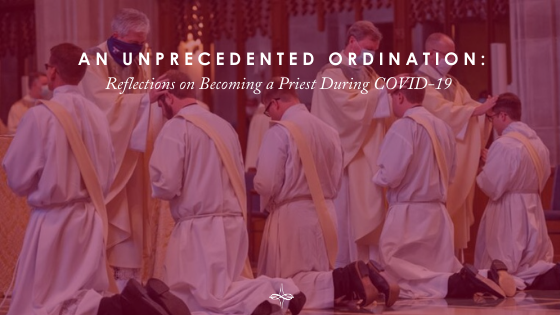
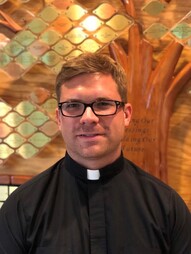
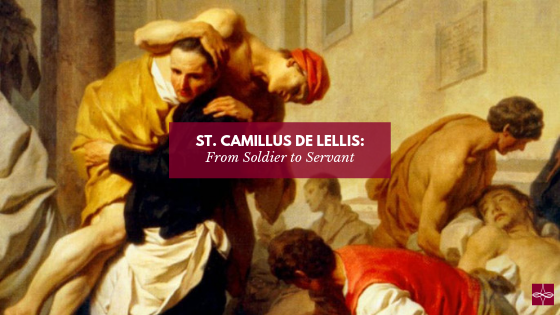

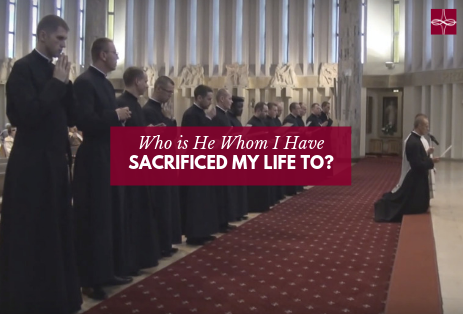
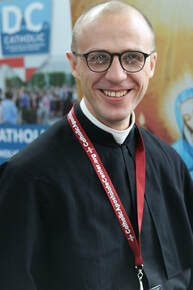
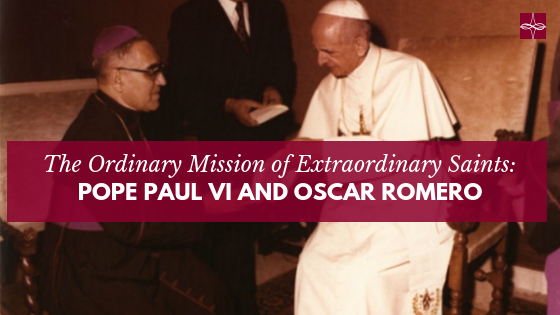

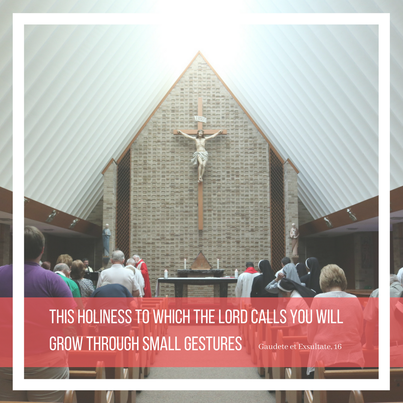
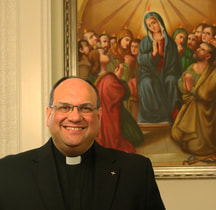
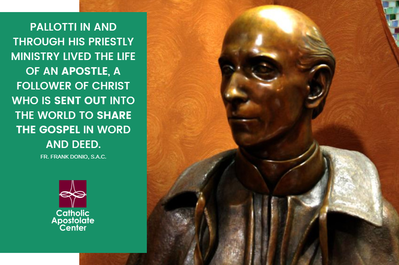
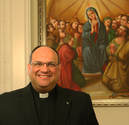
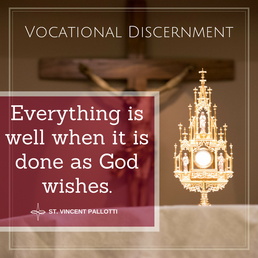
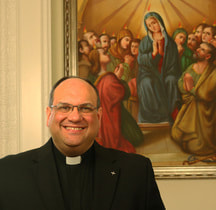
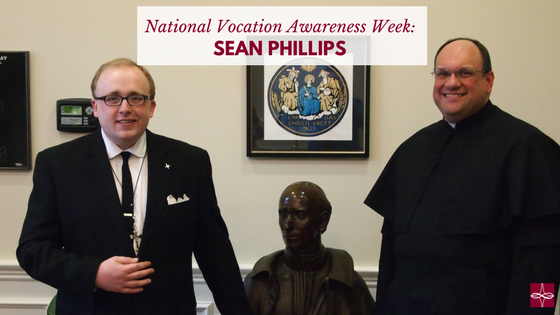
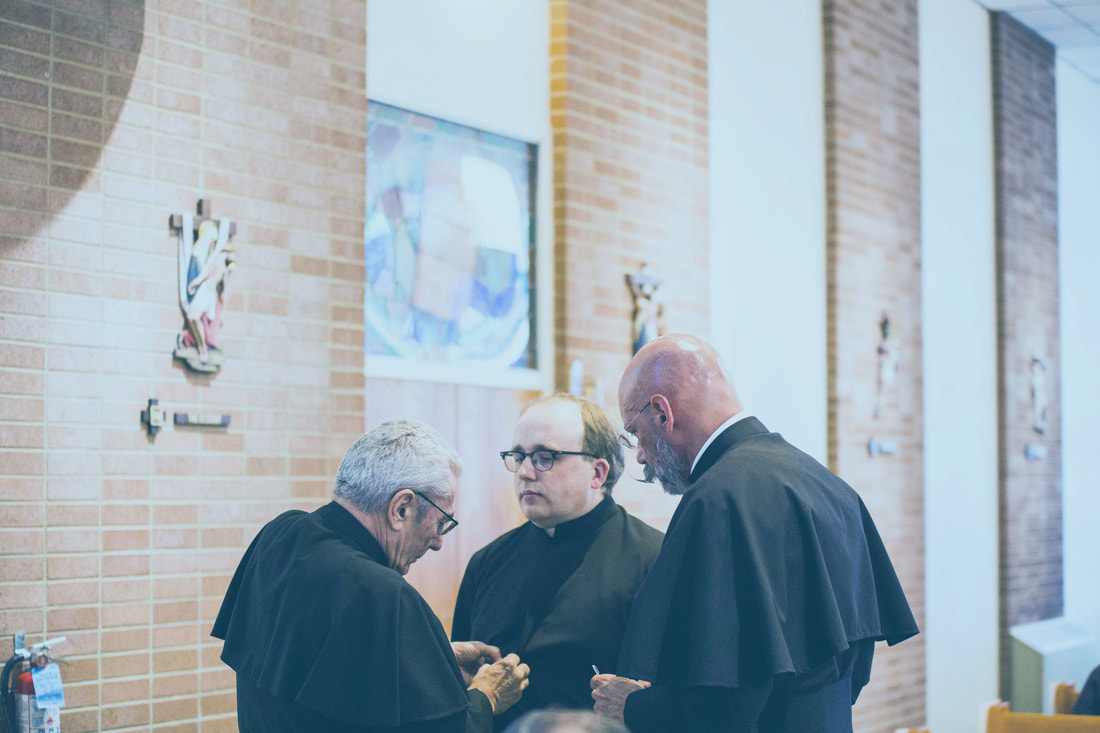
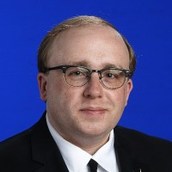
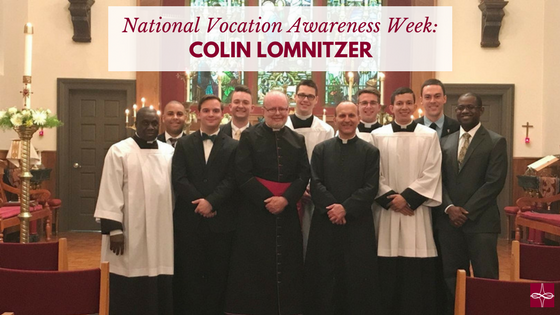
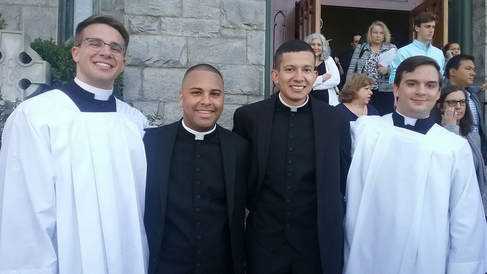
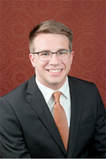
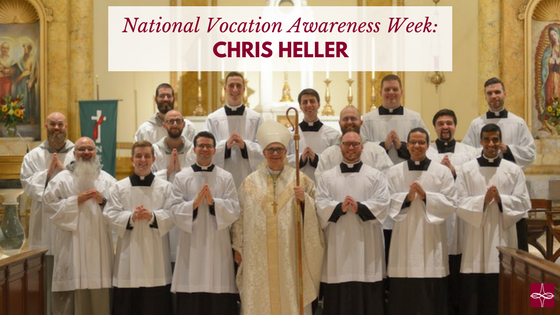
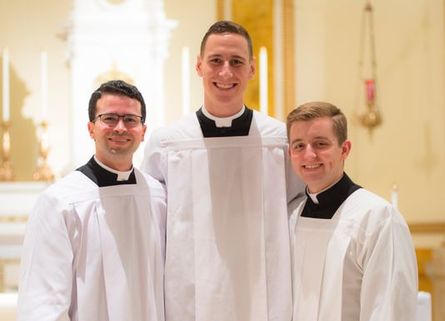
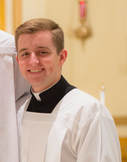
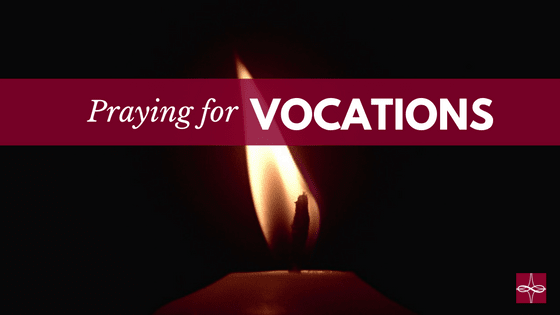
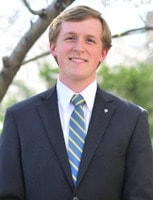


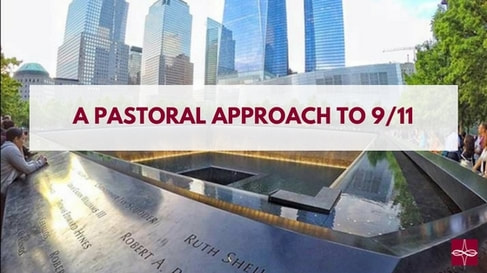
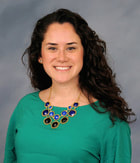
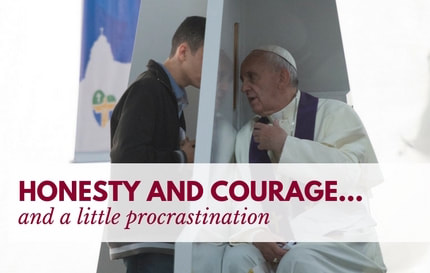
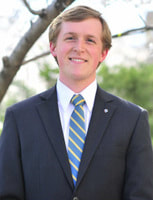
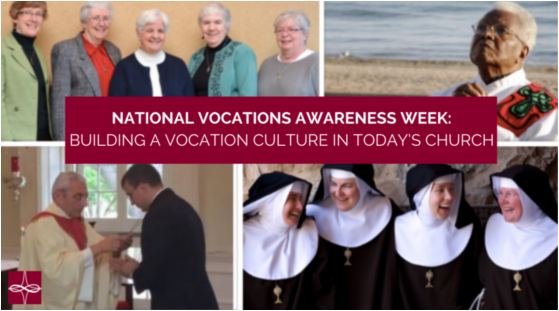
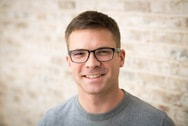
 RSS Feed
RSS Feed